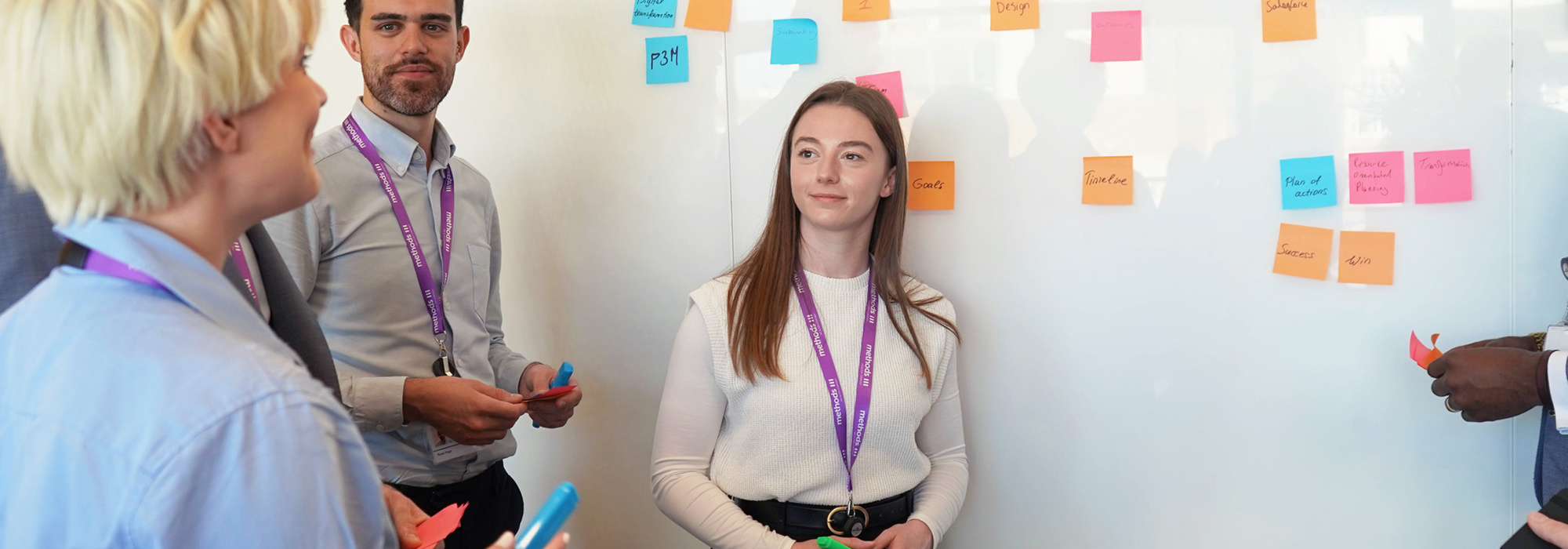Incorporating ‘Natural Capital’ approaches into government decision making

Challenge
The Department for Environment, Food and Rural Affairs (Defra) has a key role in protecting our natural environment and the services it provides us with. That might be flood defence, the air that we breathe, or the sea that we swim in for example.
Defra’s role is to ensure that nature is incorporated into decision making, not just within Defra, but elsewhere. And in order to do that, they need to speak the right language, and natural capital values nature in monetary terms. This means that nature can start to be incorporated into conversations that are outside of just environmental focused conversations.
Natural capital is the sum of our ecosystems, species, freshwater, land, soils, minerals, our air, and our seas.
Defra launched an ambitious proof-of-concept over the period of one year to explore how government can integrate natural capital approaches into decision making for the marine environment.
This flagship Research and Development (R&D) programme - marine Natural Capital and Ecosystem Assessment (mNCEA) - looked at three things – social value, economic value, and environmental value. When these three approaches are combined, then collectively decision makers can start to look at nature as a whole and the value these approaches directly or indirectly bring to people.
Solution
The proof-of-concept explored 21 natural capital and ecosystem assessment projects. These were delivered by Defra’s Arm’s Length Bodies (ALBs), including the Centre for Environment, Fisheries and Aquaculture Science (CEFAS), Environment Agency, Joint Nature Conservation Committee (JNCC), Marine Management Organisation, and Natural England, and were supported by Methods.
Methods' key role was to provide project and programme management capabilities, bringing Defra and their ALBs together in order to share information and findings, and challenge and review all of this in order to begin to provide natural capital outcomes.
We identified what needed to be done over the three-year period in order to deliver a successful mNCEA programme, highlighted key evidence gaps, and outlined the benefits of using industry to collect all that information, from autonomous underwater vehicles to drones.
We then focused on our ethical consultancy values, building sustainable capability rather than dependency within our client's teams and delivering structured knowledge transfer from the beginning. This included templates and guidance that would allow Defra and the ALBs to move forward at the appropriate point without Methods' involvement.
Impact
1. The proof-of-concept year has been incredibly successful. Defra has been able to use its natural capital approach to respond to new policy demands, incorporating the use of our seas, or how we get our energy in the UK, for example.
2. Internally at Defra there are now robust operating models, programme management, and project management in place. The different parts of Defra are collaborating successfully in ways that have never been done before – delivering a new way of working for the organisation.
"By having Methods alongside during this programme development, it's really given us the space to do all of the appropriate engagement that we need to do. Without that senior engagement, without that policy engagement time, this programme would be nowhere near as successful as it is now."
Emily Gardener
Defra
